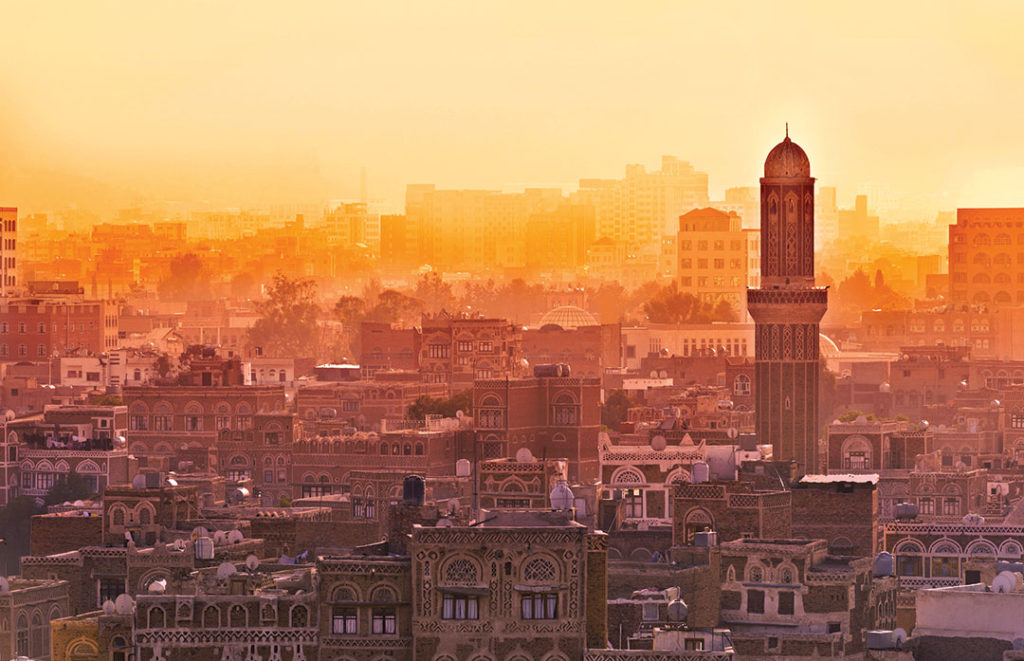Tehran pushes its radical political and ideological agenda in the Middle East
MAJ. GEN. MOHAMMED ZAYED MAHMOUD IBRAHIM. YEMEN’S MILITARY ATTACHÉ IN WASHINGTON, D.C.

Iran, formerly known as Persia, today is called the Islamic Republic of Iran, with Tehran as its capital. Its system of government is based on the supreme leader, considered to be the highest authority in the state and the decision-maker. The nation has adopted the “Guardianship of the Islamic Jurist,” a modern political theory that allows clerics to govern in Iran. The Iranian constitution, issued in 1979, gives the supreme leader broad powers, with the most important being: defining the general policies for governing, leading the armed forces, declaring war and initiating change. The leader also has the right to dismiss the president of the republic as well as the leaders of the Guardian Council and the head of the judiciary.
Religious wishes and desires, as well as historical ambitions, are intertwined in the process of formulating and defining the path of Iran’s ideological agenda regarding Yemen.
Much has been written and presented about Iranian intervention in Yemen. This emerged in October 2012, when Yemeni President Abdrabbuh Mansur Hadi accused Iran of attempting to implement a plan to control the Bab el-Mandeb strait leading to the Red Sea. He called for urgent international action to curb these plans.
On September 28, 2012, President Hadi spoke at the Woodrow Wilson International Center for Scholars in Washington, D.C., saying that one of the threats facing Yemen was Iran’s blatant interference. He stressed that, with the seeming collapse of the regime in Syria, Iran was attempting to compensate for those losses by making Yemen a strategic option since it lies between the Arabian Gulf oil states and the Horn of Africa.
The Yemeni president explained that these interventions manifested themselves in Iran’s support for some political groups as well as some of the armed militias, alongside recruiting and implanting networks of spies. The president described the existence of six espionage networks working for Iran, all of which have been referred to the judiciary in Yemen.
At the same time, Yemen’s minister for foreign affairs warned about the extent of Iran’s interference in Yemen’s internal affairs.
On the sidelines of a December 2012 security conference in Bahrain, Dr. Ali al-Ahmadi, then head of Yemen’s National Security Service, said that Iran seized the opportunity to expand the conflict. He affirmed that evidence of Iranian subversive elements exists, as well as evidence of their intervention.
Observers believe Iran’s support of the Houthi rebels, who have been fighting the Yemeni government since the 1990s, is the most significant factor in Iran’s attempt to expand its influence in Yemen.
Iran has extended media and political support for the Houthis. It has provided the militias with weapons, either by smuggling them to Saada or by providing financial support to purchase weapons in Yemen.
Intelligence reports say Iran has established a base in Eritrea to supply the Houthi militias with weapons. Supplies are made by boat to the western districts of Yemen through small Yemeni ports such as Medi and Al Luhayyah, which are near Saada. Numerous news stories report that Iranian ships in the Gulf of Aden, under the guise of fighting terrorism and piracy, are using Yemeni fishing boats to smuggle weapons into Yemen.
The reality is that there are many and varied methods of smuggling weapons, and there is ample evidence confirming this criminal activity. Examples include the seized ships Jihan 1 and Jihan 2, the transfer of missiles and rockets to the Houthis and the presence of the Iranian Revolutionary Guard and Iranian-sponsored trainers.
It is notable that the firing of one of the missiles was mentioned by Ambassador Nikki Haley, then U.S. representative to the United Nations Security Council.
Between 2011 and 2012, Iran expanded its field of political communications with Houthi rebels and other political figures in Yemen. Additionally, the area of arms shipments expanded as part of what was defined by intelligence officials as an Iranian effort to expand its influence in the Middle East.
Iran continued to send materials and equipment to manufacture high-explosive armour-piercing weapons. They were sent to some Yemeni businessmen associated with the Houthi rebels before the Yemeni government could intercept them.
Under cover of revolution, the Houthis were able to attract tribal support. This resulted in a split among the revolutionaries, between those supporting the Gulf initiative and others rejecting it on the basis of their subordination to Iran and the Iranian outlook that prevails in the reactionary and bloodthirsty regime in Tehran.
Iran has reaffirmed its support for its Houthi ally in Yemen and refused to discuss disarmament of its other ally in Lebanon, Hezbollah.
In conclusion, Iran has three strategic aims that define Tehran’s needs in Yemen: controlling the Bab el-Mandeb strait, expanding its ideological influence and threatening the security of Arab nations.
We conclude that Iran has had an interest in Yemen for years, perhaps as far back as the 1990s, when the leader of the Houthis was indoctrinated in Iran.
Since then, Yemen has ranked high among the priorities of Iranian political thinking, because its location allows Iran to achieve all three strategies outlined above, for which the decision-makers in the upper echelons of Iranian leader Ali Khamenei’s government have long planned.

